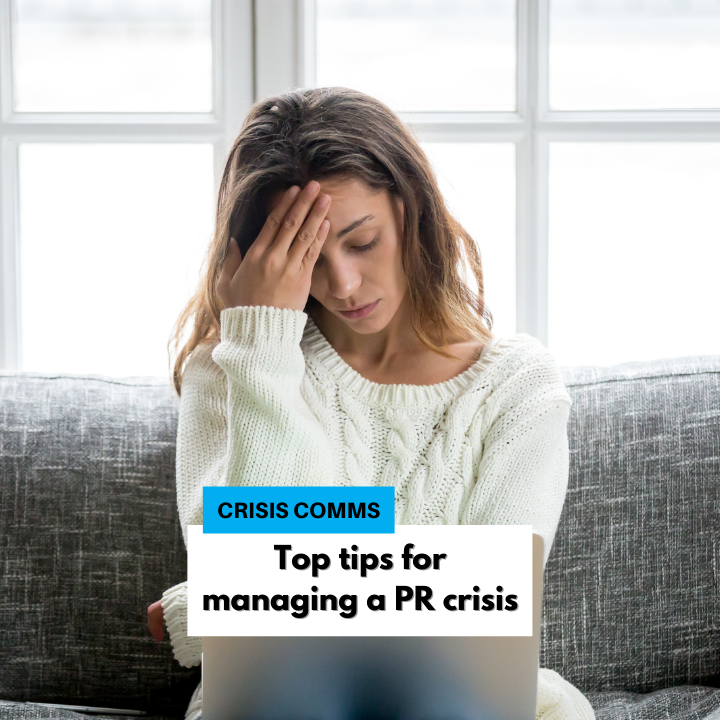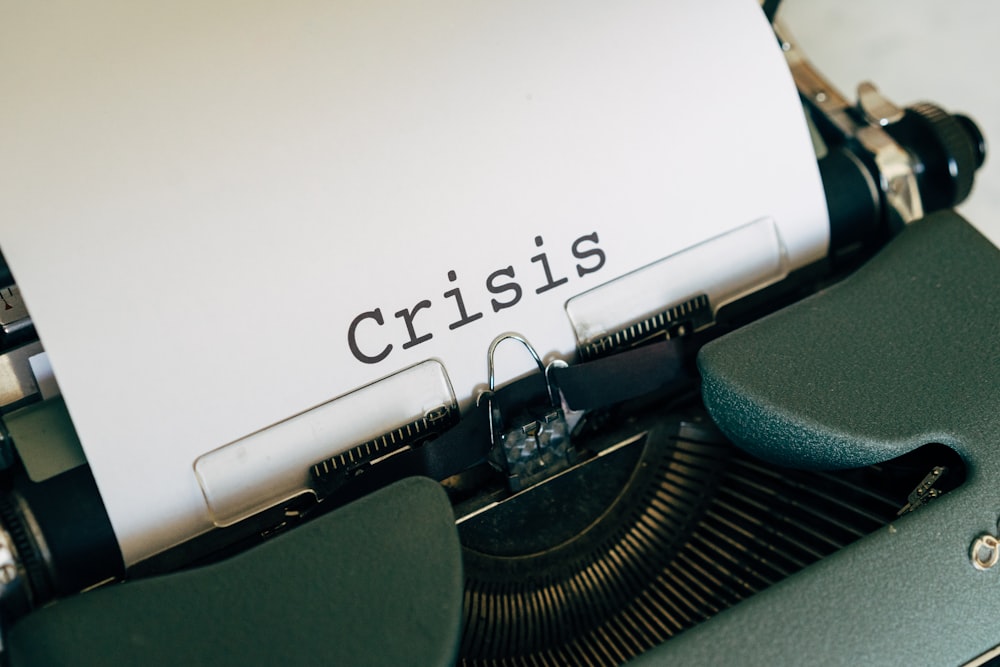
Top tips for managing a PR crisis
It doesn’t matter what sort of company you have, there is always the potential for a crisis to occur and as the famous saying goes, “A reputation takes decades to build and seconds to destroy.”
With this in mind, we have put together some of our top tips for handling a PR crisis. If podcasts are more your thing, check out Episode 6 of Revitalise & Grow, which is all about managing crisis PR.
First things first, how do you know if you are having a PR crisis?
You know you are dealing with a serious PR crisis when you are faced with a barrage of complaints, a wave of negative social media chatter and invasive and hostile media attention – all usually before full information is available to the executive team.
How to handle it
You have a choice in how you handle the issue. You can allow others to shape their own perceptions of you and your actions, which is usually by doing nothing until the lawyers say it’s safe to do so and all the facts are known. This approach can make your company look heartless, ignorant or even evasive. The other (better) option is to take control of the situation by taking an early proactive role.
Before any crisis incident happens
Existing research into crisis communication management proves that success in a crisis often comes down to two main factors: response time and preparedness.
The first few hours of any crisis are crucial, and in order to stay in control of a situation you need to be seen to be at the centre of the response. A speedy, comprehensive and calm response that projects a credible, responsible and caring company can sometimes stop a potential storm in its tracks. But any sort of delay, complacency or “information vacuum” can, and will, lead to false reports and reputational damage.
So plan for the worst. Imagine your worst nightmare and get your crisis plan in place!
During a crisis
- Be honest and open, but do not speculate.
- Stick to the known facts. It’s ok to say “I can’t answer that question because that information is not known at the moment…” But it’s definitely not ok to say “No comment”
- Tell people what’s going on now, and what they should do. Talk about what your organisation is doing to mitigate the problem; don’t get drawn into arguments or focus on what’s already gone wrong.
- Put public, customer and employee health and safety issues at the top of your list of concerns and your messages. Do not talk about the financial cost of the crisis to your business!
- Know when to say you’re sorry. The lawyers will not like this. But you need to agree a way that demonstrates empathy and compassion – do not underestimate the power of being human.
- The visibility of the Chief Executive and other senior company spokespeople is critical. Use them strategically to reassure key stakeholders.
- Put the incident into perspective and show how rare this crisis really is.
- Don’t mix your messages. Consistent messaging must be used across the board – for the media, staff and the public.
- Written statements are essential. They should include relevant content (particularly covering the five W’s – who, what, where, when, why). Avoid using technical detail and jargon. A speedy internal approval process must be in place – with statements drafted and approved for use quickly – in minutes, not hours.
- Use the statements on your website, intranet, social media channels etc. and distribute them to media when approached. Don’t just think about the words – visual messages can also be extremely helpful, including video statements from the CEO.
- Ensure you cancel any pre-planned social media posts – at best they will seem inappropriate, at worst, offensive. Do social media variations of the statement and use them across your social channels. Ensure someone is responsible for cherry picking which social media posts should be responded to. Focus on key influencers.
- Ensure that nobody is speaking to the media unless they are an official media spokesperson or are an approved member of the crisis comms teams. Customer facing teams should be given the approved statement and tasked to take down names, phone numbers and queries for the comms team to reply to.
- Document absolutely everything.
After
When it is all over, take time to discuss what you have learned from handling this crisis. Think about how you are going to deal with any ongoing recurrence of publicity (such as a later court judgement, HSE investigation, inquest or public inquiry, or the anniversary of the incident).
Your post-crisis PR and marketing strategy must strike a very careful tone, both positive and upbeat but also that you have learnt from the incident.
Listen to Episode 6 of our podcast, Revitalise & Grow for more tips on managing a crisis and check out our free Crisis PR 101 guide that will give you the tools you need to develop a crisis plan that will protect your business when a crisis strikes.





